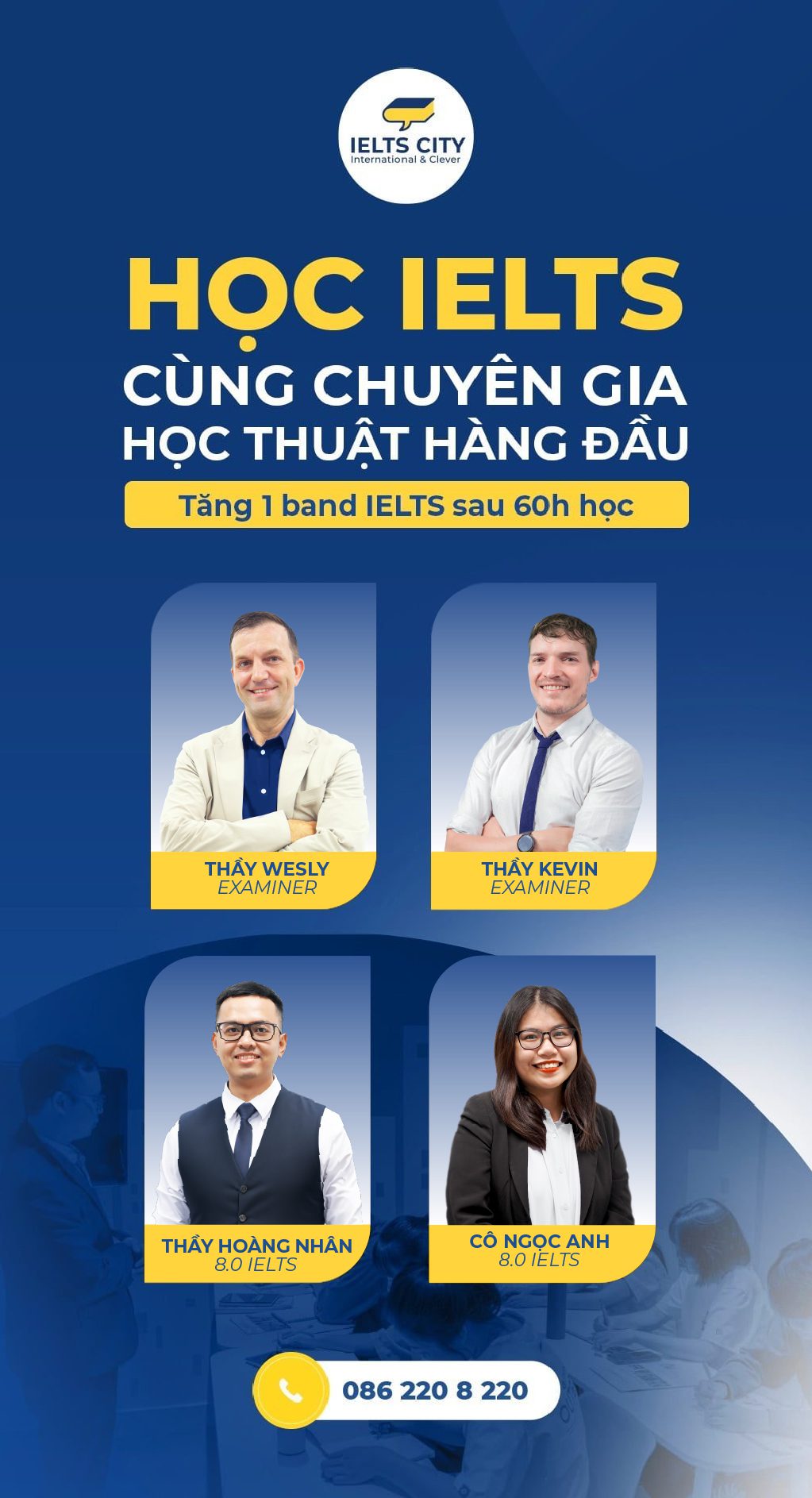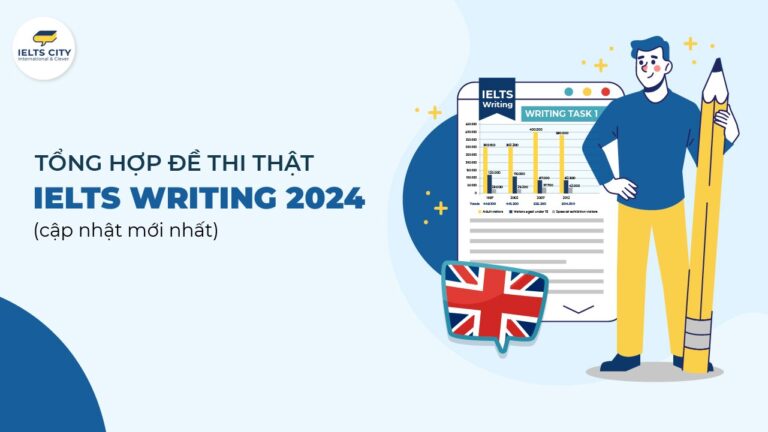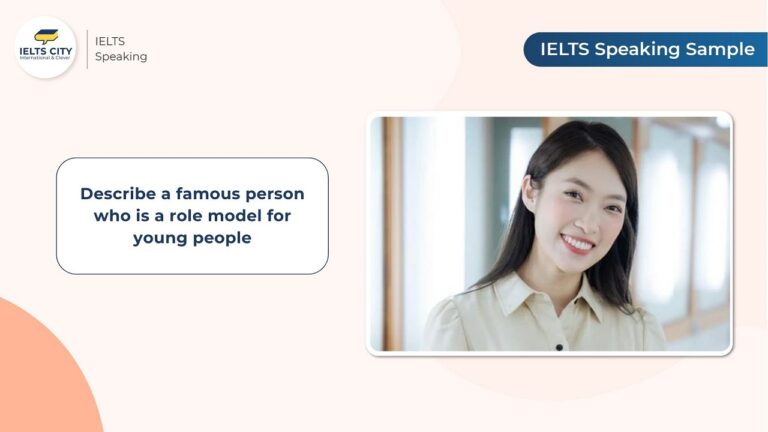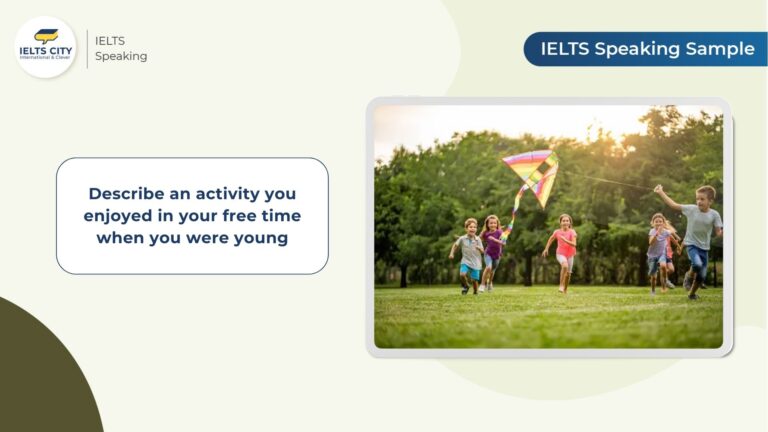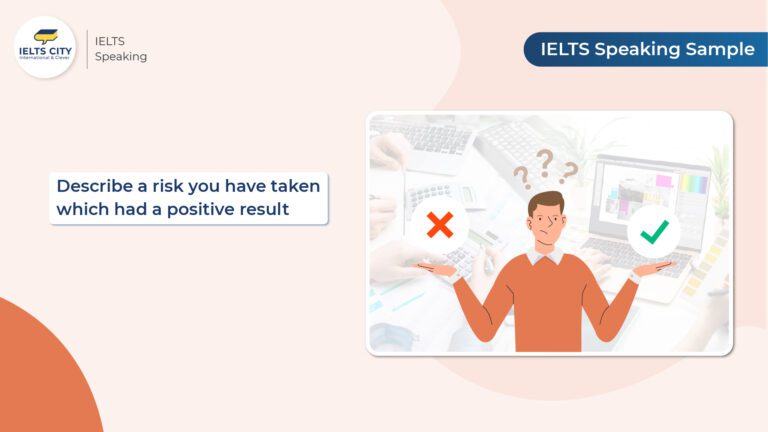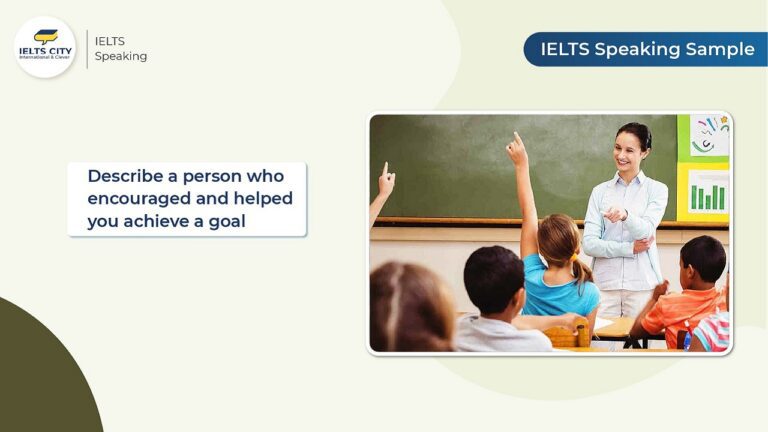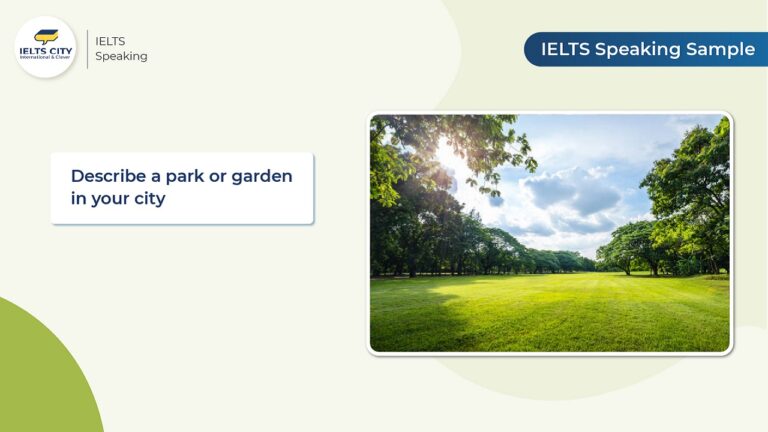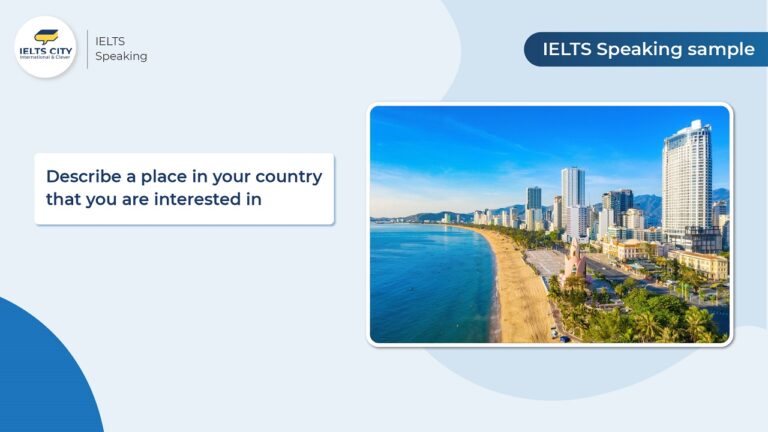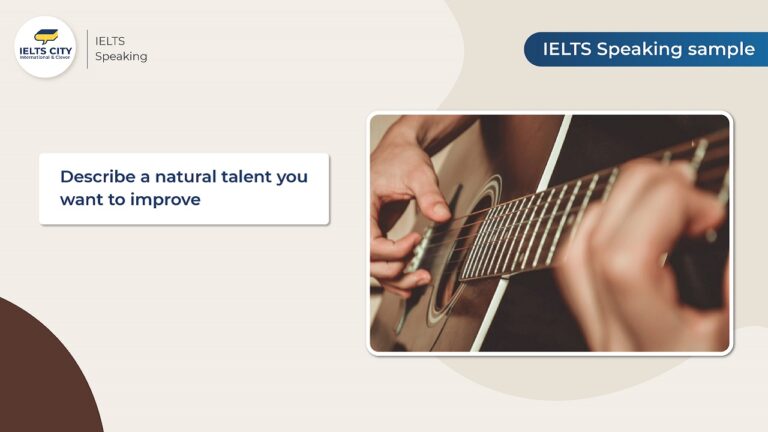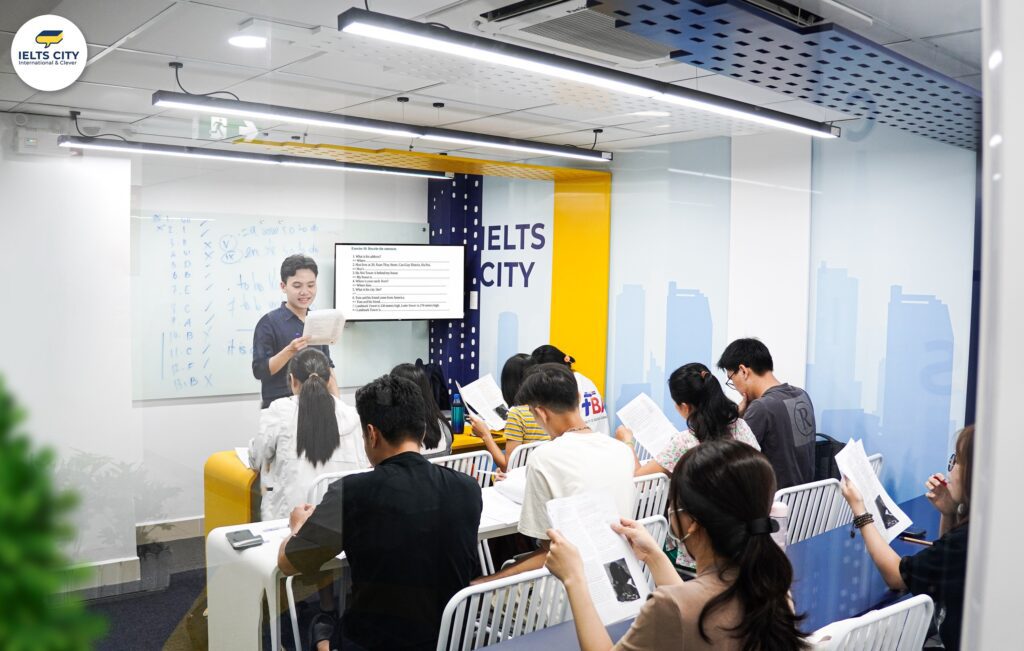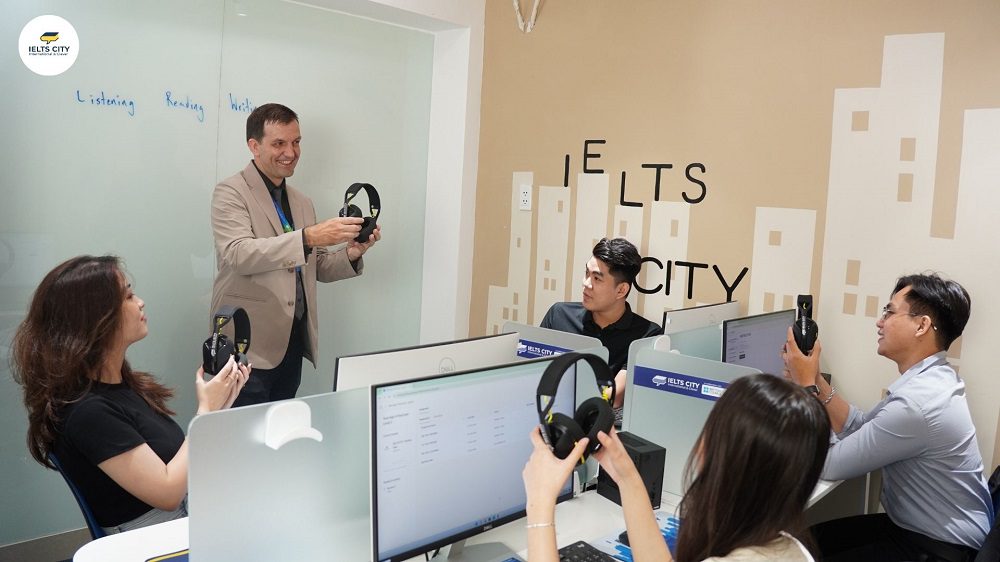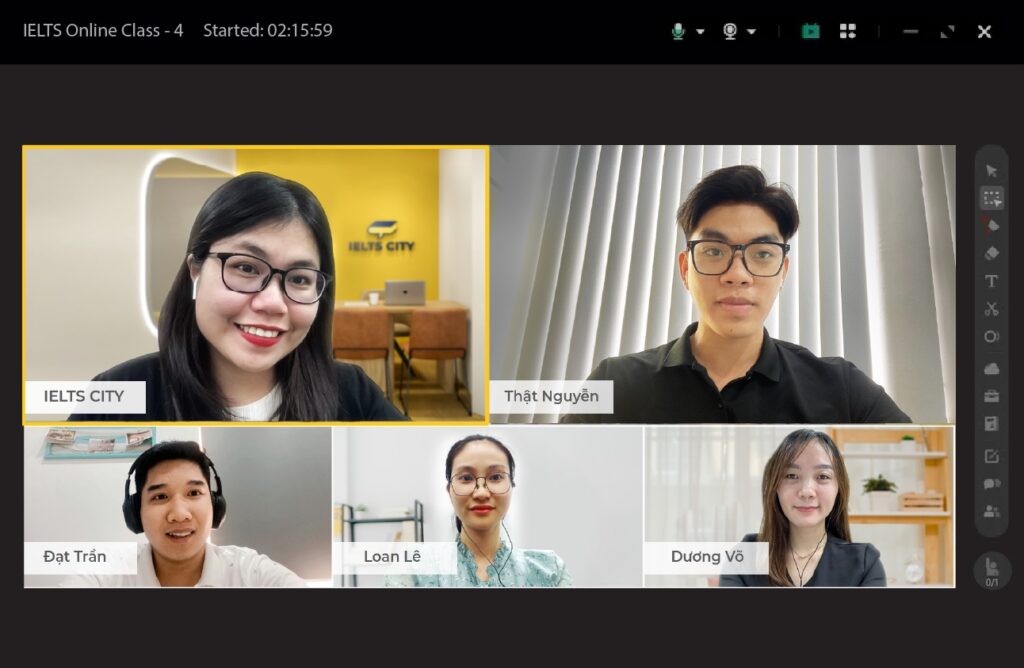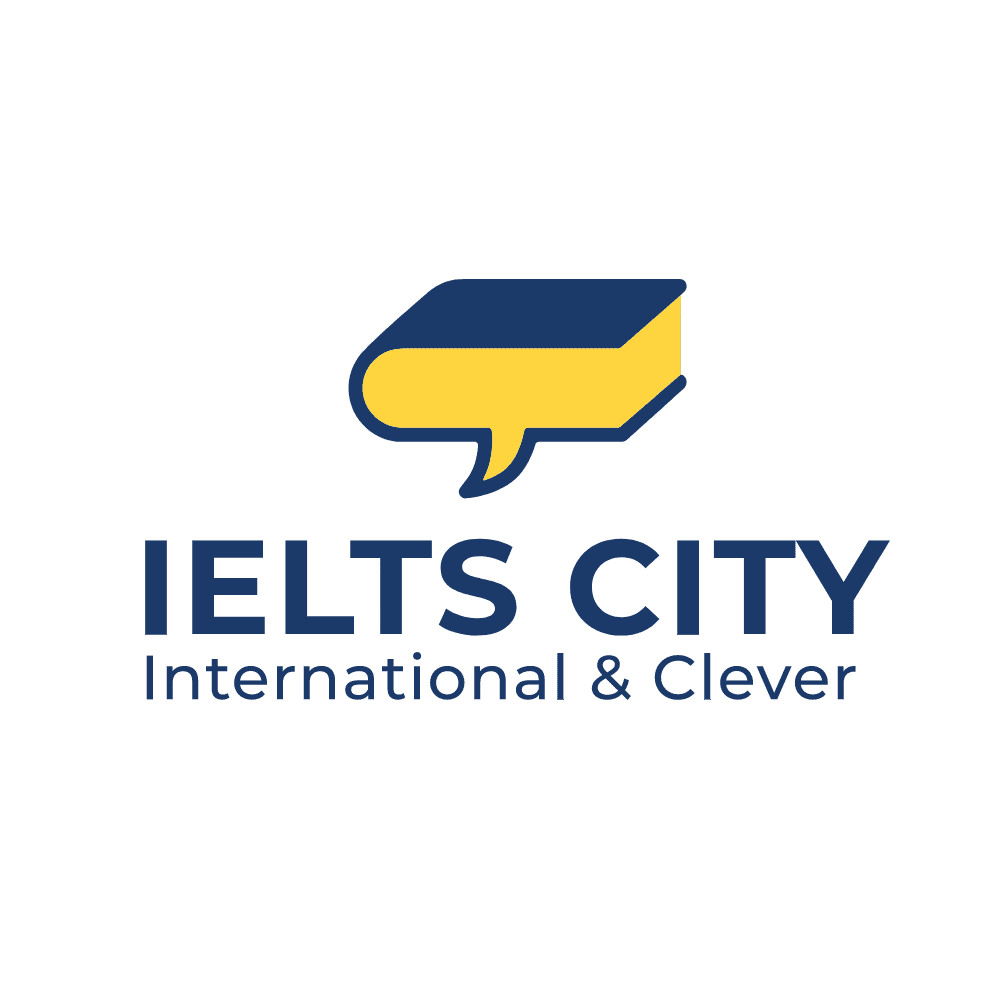Describe an occasion when you received incorrect information là đề thi IELTS Speaking Part 2 ngày 02.06.2023 về một dịp bạn nhận thông tin bị sai lệch. Đề trả lời điểm cao cho topic này, các bạn hãy cùng IELTS CITY tham khảo bài mẫu band 7.5 tại bài viết sau nhé!
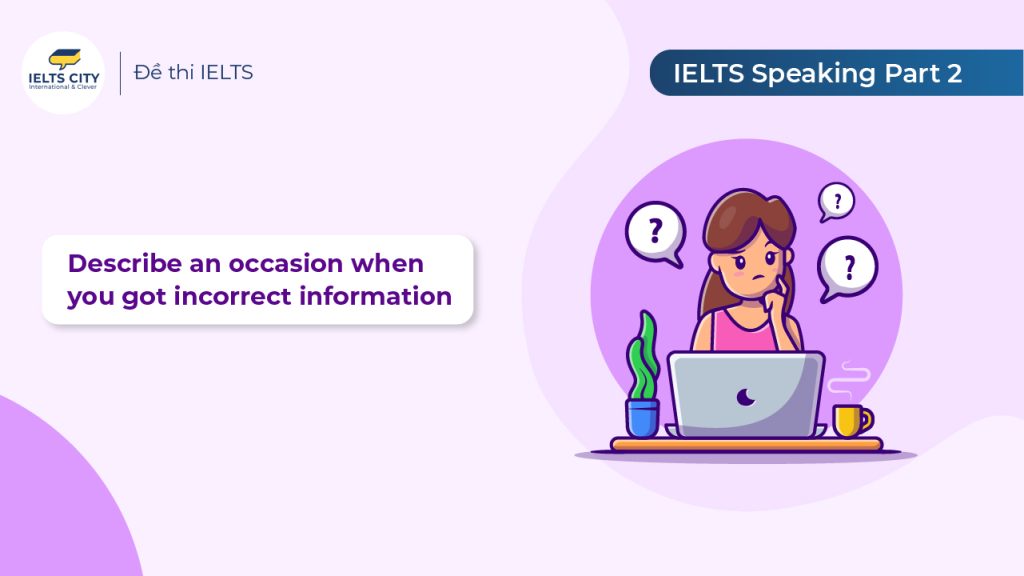
Nội dung chính
Toggle1. Bài mẫu IELTS Speaking Part 2 ngày 02.06.2023
| Describe an occasion when you received incorrect information |
|---|
| You should say: – When it happened – What the information was – How you learned the information was incorrect And explain how you felt about the experience. |

Dàn ý
Introduction:
- Briefly mention the topic: Describe an occasion when you got incorrect information.
- State the time frame when it happened: About six months ago.
Body:
- Provide details of the situation:
- Explain the context: Planning a trip to a popular tourist destination.
- Mention reliance on online information, specifically a travel blog.
- Talk about the incorrect information received regarding transportation options.
- Describe how you learned the information was incorrect:
- Share the realization at the train station that there was no direct train service.
- Mention the disappointment and frustration experienced.
- Explain the cause of the incorrect information:
- Speculate that the blog provided outdated information or made a mistake.
- Discuss the actions taken to overcome the situation:
- Share finding an alternative transportation option, a bus service.
- Mention the longer travel time compared to the anticipated train journey.
- Reflect on the experience:
- Emphasize the importance of verifying information from multiple reliable sources.
- Express the lesson learned about being cautious and skeptical of online information.
- Talk about becoming a more informed and careful traveler as a result.
Conclusion:
- Summarize the experience and the impact it had on your approach to online information.
- Reiterate the significance of independently verifying details for important trips.
Trước khi xem bài mẫu bạn nên xem trước cách trả lời IELTS Speaking Part 2 nhé!
Bài mẫu 7.5
Nhấn “►” để nghe Podcast bài mẫu:
I would like to talk about a recent occasion when I received incorrect information. It happened about six months ago when I was planning a trip to a popular tourist destination. I was searching for information online and came across a travel blog that claimed to have accurate details about the attractions and transportation options at the destination.
According to the blog, there was a direct train service from the city to the tourist spot, and it was the most convenient way to reach there. I relied on this information and made my travel arrangements accordingly. However, when I reached the train station on the day of my trip, I was informed that there was no direct train service to the tourist spot. I was shocked and frustrated as I had relied heavily on the blog’s information.
I soon realized that the blog had provided outdated information or perhaps the author had made a mistake. Feeling disappointed, I immediately started looking for alternative transportation options. Fortunately, I found a bus service that would take me to the destination, although it would take longer than the anticipated train journey.
This experience taught me a valuable lesson about the importance of verifying information from multiple reliable sources. I realized that blindly relying on a single blog or website can lead to inaccurate information and unnecessary hassles. From that point forward, I became more cautious and made sure to cross-reference information from reputable travel websites and official sources.
Overall, this experience left me feeling frustrated initially, but it also served as a reminder to be more discerning when it comes to relying on information obtained online. It highlighted the significance of verifying details independently, especially when it comes to planning important trips. I believe this experience has made me a more informed and careful traveler, and I now approach online information with a healthy dose of skepticism.
Từ vựng
- Attraction (n): địa điểm thu hút
- Transportation (n): Giao thông
- Option (n): Lựa chọn
- Outdated (adj): cũ, lỗi thời
- Reliable (adj): Đáng tin cậy
- Anticipate (v): dự đoán
- Hassle (n): Phiền toái
- Discerning (adj): Sáng suốt, thông minh
- Skepticism (n): hoài nghi
Dịch
Tôi muốn nói về một dịp gần đây khi tôi nhận được thông tin sai. Nó xảy ra khoảng sáu tháng trước khi tôi đang lên kế hoạch cho chuyến đi đến một điểm đến du lịch nổi tiếng. Tôi đang tìm thông tin trên mạng và tình cờ tìm thấy một blog du lịch tuyên bố có thông tin chính xác về các điểm tham quan và các phương tiện giao thông tại điểm đến đó.
Theo blog đó, có một dịch vụ tàu điện trực tiếp từ thành phố đến điểm du lịch và đó là cách thuận tiện nhất để đến đó. Tôi tin cậy vào thông tin này và đã sắp xếp các kế hoạch đi lại theo đó. Tuy nhiên, khi tôi đến ga tàu vào ngày đi, tôi được thông báo rằng không có dịch vụ tàu điện trực tiếp đến điểm đến du lịch. Tôi bị sốc và thất vọng vì tôi đã phụ thuộc mạnh vào thông tin từ blog đó.
Sau đó, tôi nhận ra rằng blog đó đã cung cấp thông tin cũ hoặc có thể tác giả đã mắc lỗi. Cảm thấy thất vọng, tôi ngay lập tức bắt đầu tìm kiếm các phương tiện giao thông thay thế. May mắn thay, tôi tìm thấy một dịch vụ xe buýt sẽ đưa tôi đến điểm đến, mặc dù nó sẽ mất thời gian lâu hơn so với chuyến tàu dự kiến.
Kinh nghiệm này đã giúp tôi nhận ra giá trị của việc xác minh thông tin từ nhiều nguồn đáng tin cậy. Tôi nhận ra rằng đơn thuần tin tưởng một blog hoặc trang web duy nhất có thể dẫn đến thông tin không chính xác và phiền toái không cần thiết. Từ đó, tôi trở nên cẩn trọng hơn và đảm bảo kiểm tra thông tin từ các trang web du lịch đáng tin cậy và nguồn thông tin chính thức.
Nhìn chung, trải nghiệm này khiến tôi cảm thấy thất vọng ban đầu, nhưng nó cũng là một lời nhắc nhở để trở nên thông minh hơn khi tin tưởng thông tin trên mạng. Nó đã nhấn mạnh tầm quan trọng của việc xác minh chi tiết một cách độc lập, đặc biệt là khi lên kế hoạch cho các chuyến đi quan trọng. Tôi tin rằng trải nghiệm này đã làm tôi trở thành một du khách thông thái và cẩn trọng hơn, và bây giờ tôi tiếp cận thông tin trực tuyến với một lượng đáng kể sự hoài nghi.
Đăng ký học thử
2 tuần miễn phí
Ưu đãi học phí lên đến 50%
& Tặng 100% lệ phí thi IELTS
Đăng ký học thử
2 tuần miễn phí
Ưu đãi học phí lên đến 50%
& Tặng 100% lệ phí thi IELTS
2. Câu trả lời mẫu IELTS Speaking Part 3 ngày 02.06.2023
Trước khi xem câu trả lời mẫu bạn nên xem trước cách trả lời IELTS Speaking Part 3 nhé!
2.1. Children should learn to distinguish fake and real answer or just learn the fact?
It is important for children to learn the skill of distinguishing between fake and real answers rather than merely memorizing facts. In today’s digital era, where misinformation is prevalent, developing critical thinking skills allows children to navigate the vast amount of information available and make informed judgments. By teaching them to question the authenticity and credibility of information, we empower them to become discerning consumers of knowledge, enabling them to make wise decisions and avoid being misled by false information.
Từ vựng:
- Distinguish (v): Phân biệt
- Prevalent (adj): Phổ biến
- Misled (adj): Bị lừa dối
- Credibility (n): Độ tin cậy
Dịch:
Việc học kỹ năng phân biệt giữa câu trả lời giả và thật là quan trọng đối với trẻ em hơn là chỉ đơn thuần ghi nhớ các sự thật. Trong thời đại số, nơi thông tin sai lệch phổ biến, phát triển kỹ năng tư duy phản biện cho phép trẻ em điều hướng qua số lượng thông tin khổng lồ và đưa ra nhận định thông minh. Bằng cách dạy trẻ cách đặt câu hỏi về tính xác thực và đáng tin cậy của thông tin, chúng ta trang bị cho trẻ kỹ năng đánh giá thông tin một cách nhạy bén, giúp trẻ đưa ra quyết định khôn ngoan và tránh bị lạc lối bởi thông tin sai lệch.
2.2. Jobs need to give information?
Effective communication of information is crucial in any job. Timely and accurate information ensures that employees have the necessary knowledge to perform their tasks efficiently. It promotes coordination, collaboration, and overall productivity within an organization. When employees are well-informed, they can make informed decisions, contribute effectively to their work, and foster a positive work environment. Therefore, it is essential for jobs to prioritize the provision of accurate and up-to-date information to their employees.
Từ vựng:
- Timely (adj): Đúng thời gian
- Coordination (n): Sự phối hợp
- Collaboration (n): Sự cộng tác
- Provision (n): sự cung cấp
- Up-to-date (adj): Cập nhật mới nhất
Dịch:
Giao tiếp hiệu quả thông tin là rất quan trọng trong bất kỳ công việc nào. Thông tin đúng và kịp thời đảm bảo nhân viên có đủ kiến thức cần thiết để thực hiện công việc một cách hiệu quả. Điều này thúc đẩy sự phối hợp, cộng tác và nâng cao năng suất tổ chức. Khi nhân viên được cung cấp đầy đủ thông tin, họ có thể đưa ra quyết định thông minh, đóng góp hiệu quả vào công việc và tạo một môi trường làm việc tích cực. Do đó, việc ưu tiên cung cấp thông tin chính xác và cập nhật đến nhân viên là rất quan trọng trong công việc.
2.3. Doctors should give an important information via emails or phone calls?
When it comes to conveying important information in the medical field, such as diagnoses or test results, direct communication methods are generally more appropriate. Doctors should deliver such information through personal means, like in-person conversations or phone calls. These methods allow doctors to ensure clear and effective communication, address any concerns or questions the patients may have, provide emotional support, and deliver personalized care. While email can be useful for non-urgent matters or follow-up information, direct communication methods are more suitable for delivering critical information, as they allow for a more immediate and compassionate approach.
Từ vựng:
- Compassionate (adj): Đầy lòng từ bi
- Immediate (adj): Ngay lập tức
- Appropriate (adj): Phù hợp
- Critical (adj): Quan trọng
- Diagnose (n): Chuẩn đoán
Dịch:
Khi truyền đạt thông tin quan trọng trong lĩnh vực y tế, chẳng hạn như chuẩn đoán hoặc kết quả xét nghiệm, phương pháp truyền đạt trực tiếp thường phù hợp hơn. Bác sĩ nên truyền đạt thông tin như vậy thông qua các phương pháp cá nhân, như cuộc trò chuyện trực tiếp hoặc điện thoại. Những phương pháp này cho phép bác sĩ đảm bảo giao tiếp rõ ràng và hiệu quả, giải đáp mọi mối quan tâm hoặc câu hỏi mà bệnh nhân có thể có, cung cấp hỗ trợ tâm lý và chăm sóc cá nhân hóa. Trong khi email có thể hữu ích cho các vấn đề không urgent hoặc thông tin theo dõi, phương pháp truyền đạt trực tiếp phù hợp hơn để truyền đạt thông tin quan trọng, vì nó cho phép tiếp cận một cách nhanh chóng và đầy tình cảm.
2.4. Online information is wrong or right? How to know?
Online information can vary in terms of accuracy and reliability. It is essential to approach it with a critical mindset. To determine the reliability of online information, it is advisable to cross-reference it with multiple reputable sources. Reliable websites, academic publications, and official sources often provide credible and verified information. Additionally, considering the expertise of the author, the publication date, supporting evidence, and potential biases can help assess the trustworthiness of online information. Developing critical thinking skills and being discerning consumers of information are crucial for navigating the online landscape effectively and making well-informed judgments.
Từ vựng:
- Reliability (n): độ tin cậy
- Trustworthiness (n): độ uy tín
- Cross-reference: So sánh, tra cứu qua lại
- Landscape: Cảnh quan
Dịch:
Thông tin trực tuyến có thể thay đổi về tính chính xác và đáng tin cậy. Việc tiếp cận thông tin này với tư duy phản biện là cực kỳ quan trọng. Để xác định tính đáng tin cậy của thông tin trực tuyến, nên tham khảo từ nhiều nguồn đáng tin cậy khác nhau. Các trang web đáng tin cậy, các tài liệu học thuật và các nguồn chính thống thường cung cấp thông tin đáng tin cậy và đã được xác minh. Ngoài ra, việc xem xét chuyên môn của tác giả, ngày xuất bản, bằng chứng hỗ trợ và tiềm ẩn các thành kiến có thể giúp đánh giá tính đáng tin cậy của thông tin trực tuyến. Phát triển kỹ năng tư duy phản biện và trở thành người tiêu dùng thông tin nhạy bén là rất quan trọng để điều hướng một cách hiệu quả trên không gian trực tuyến và đưa ra nhận định thông thái.
Hy vọng rằng với những bài mẫu 7.5 về Describe an occasion when you received incorrect information phía trên sẽ giúp các bạn nắm được ý tưởng và từ vựng để trả lời tốt cho dạng đề này. Chúc các bạn luyện IELTS Speaking thật tốt!
Nếu các bạn đang tìm một nơi luyện thi IELTS uy tín tại TP.HCM, các bạn có thể tham khảo các khóa học luyện thi ielts cam kết đầu ra tại IELTS CITY nhé!

